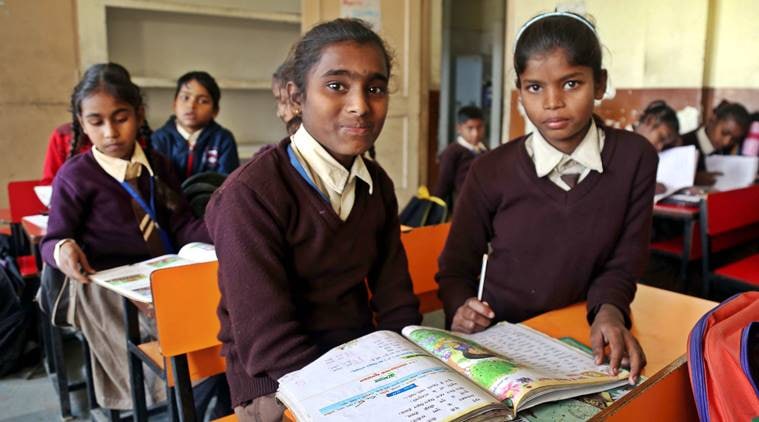The Punjab School Education Board (PSEB) in the latest circular uploaded on its website has written that it has received orders from the state government that now Class 5 and 8 annual exams will be conducted at board level.
After scrapping the no-detention policy for Class 5 and 8 in line with the amendment to the Right of Children to Free and Compulsory Education Act (RTE) passed by the Parliament in January this year, now the Punjab state education department has decided that Punjab School Education Board (PSEB) will conduct annual exams for Class 5 and 8 from 2019-2020, instead of the State Council of Educational Research and Training (SCERT).
In simpler terms it means that board exams have made a comeback for Class 5 and 8 in Punjab, years after they were scrapped after RTE implementation, and now PSEB will be setting up question papers for both classes. However, still students cannot be expelled till completion of elementary education (till Class 8). If he/she fails to score 33 per cent, there will be a re-test and if that is also not cleared, there will be no promotion to next class, as per RTE amendment.
For the session that just ended (2018-19), SCERT conducted Class 5 and 8 exams and students who scored less than 33 per cent are undergoing a re-evaluation exam (ongoing in schools). If they still fail, they will be detained and not promoted.
The PSEB in the latest circular uploaded on its website has written that it has received orders from the state government that now Class 5 and 8 annual exams will be conducted at board level. The circular further says that following these orders, the PSEB and the SCERT subject experts have prepared model question papers for convenience of students and teachers to make them familiar with the pattern that board will be following. It adds that 20 and 10 marks have been decided for Comprehensive Continuous Evaluation (CCE) for class 5 and 8, respectively. The board has also uploaded model question papers for English, Hindi, maths, social science, science and other subjects.
Speaking to The Indian Express, Raminderjit Singh, PSEB spokesperson, said that SCERT remains academic authority till class 8 but now PSEB will be conducting annual exams for class 5 and 8.
“The decision has been taken at the state government level and following them we have uploaded model question papers on our website. Since PSEB is already having that proper exam conducting mechanism in place, it has been given this responsibility in line with RTE amendment to scrap no-detention policy. It is still to be decided if Class 5 and 8 kids will be writing exams in their own schools or external centres,” he said. “Nothing changes for students except that now question papers will be set by PSEB not SCERT,” he said.
Since 2016, Punjab has been conducting evaluation of Class 5 and 8 students under a system called ‘Learning Outcome Evaluation System’ (LOES) under which students sit for exams but are not detained or held back and were given grades (A to E). Those getting ‘E’ grade (less than 33 per cent marks) were identified for ‘extra coaching’. Parents were also told grades not marks. However, after RTE amendment this year, they were given grades and marks and both were revealed to parents.
LOES evaluation was started under the then state education minister Dr Daljeet Singh Cheema in 2016 after noticing that due to no-detention policy under Right to Education Act (RTE), the learning outcomes levels were drastically declining and affecting class X board results.
Punjab was one of the states which had spoken in favour of scrapping no-detention policy then and former Chief Minister Parkash Singh Badal had also written to central government demanding reintroduction of board exams for Class 5 and 8, saying that elementary education standards were declining as both teachers and students were completely non-serious due to no-detention policy. Punjab then started LOES saying that is it not a violation of RTE Act as they will taking exams only to identify weak students without failing or detaining them.
Source: Read Full Article


